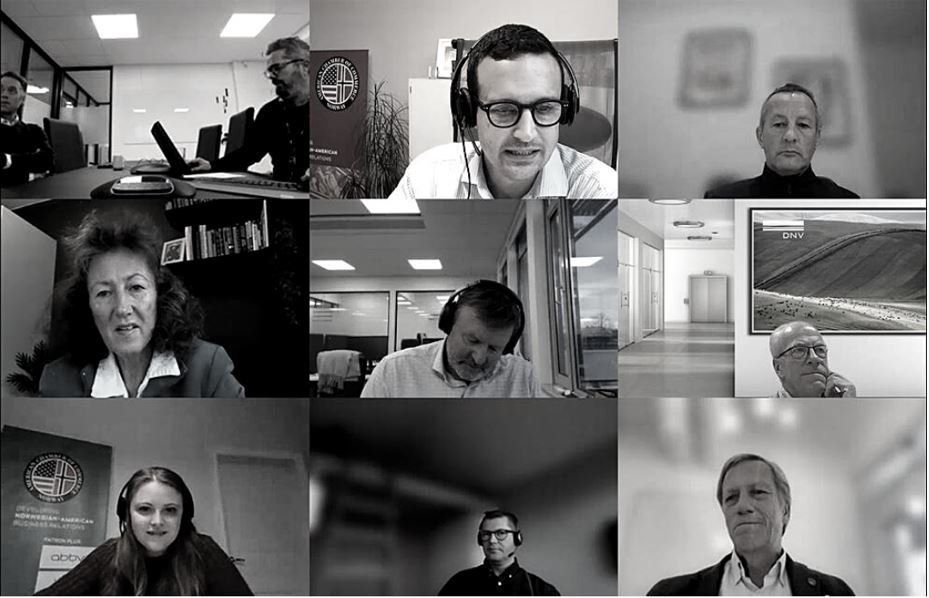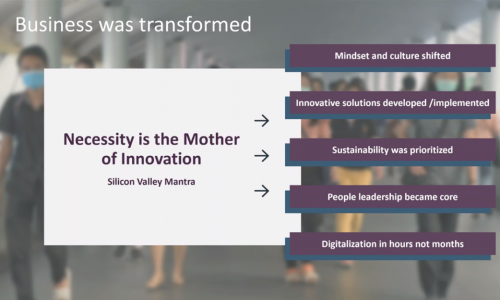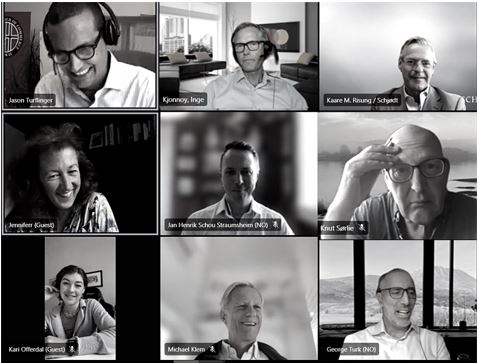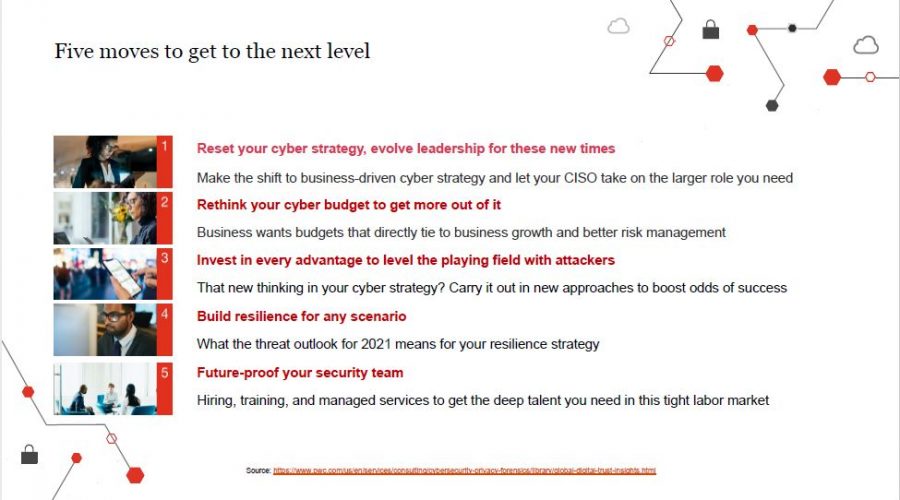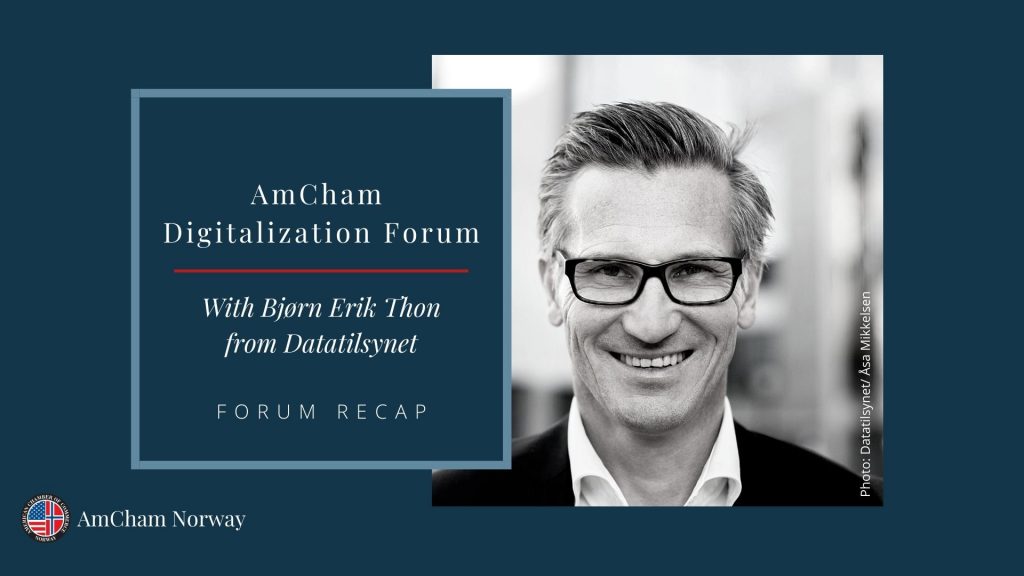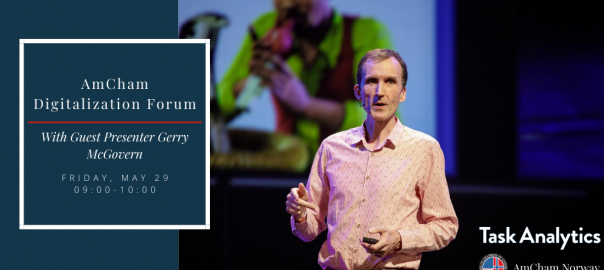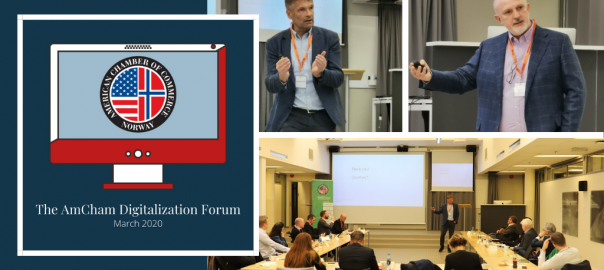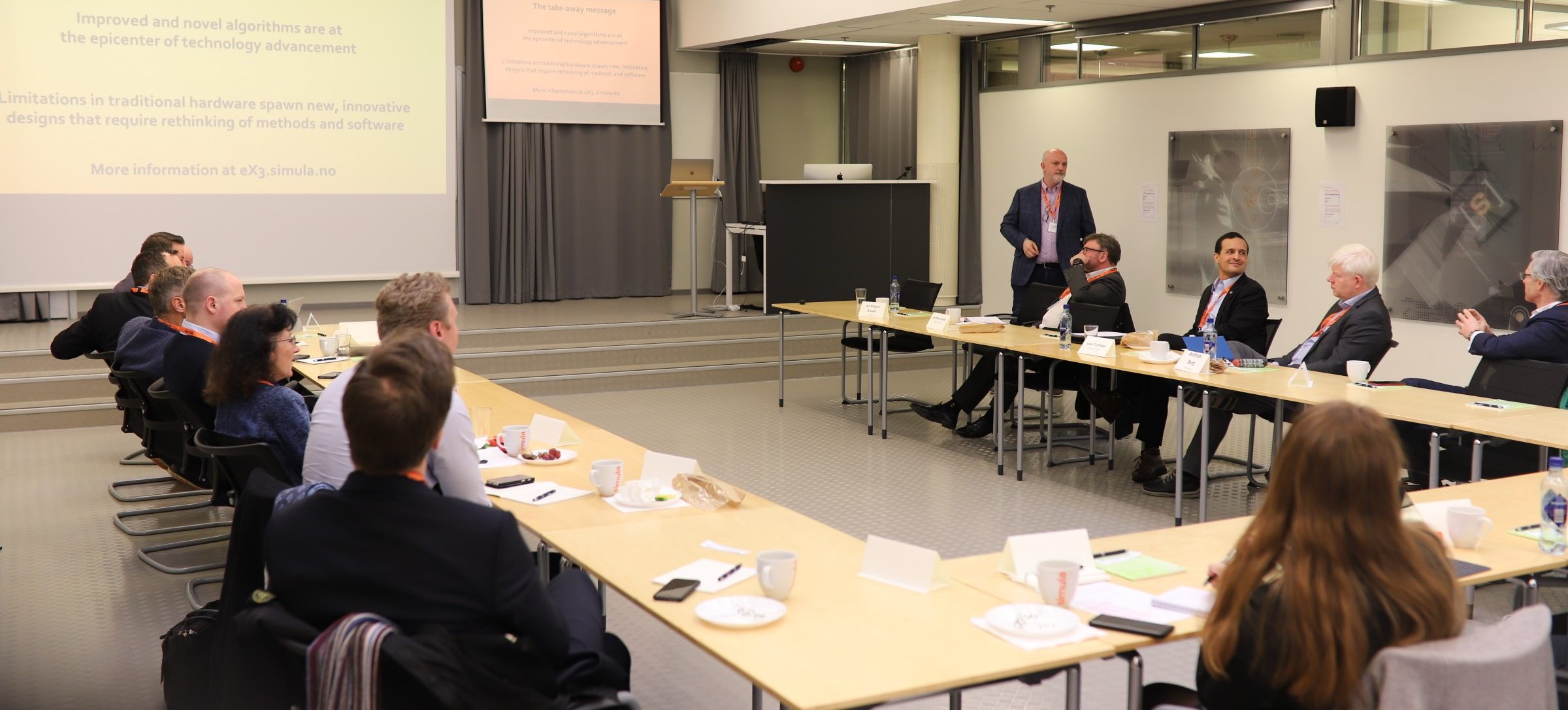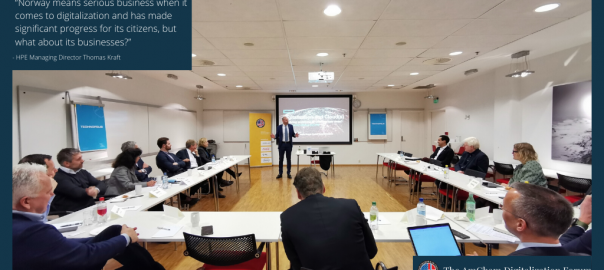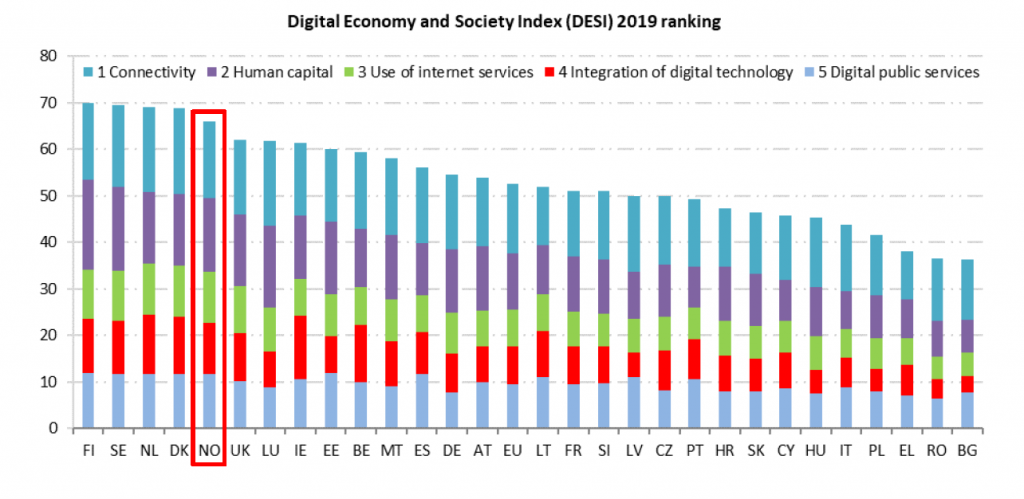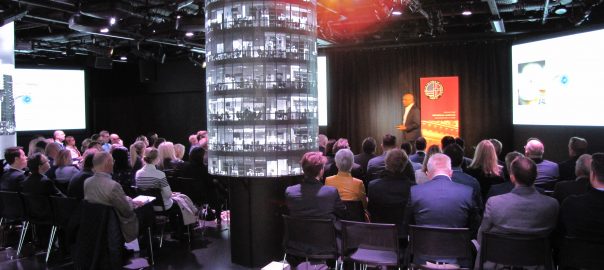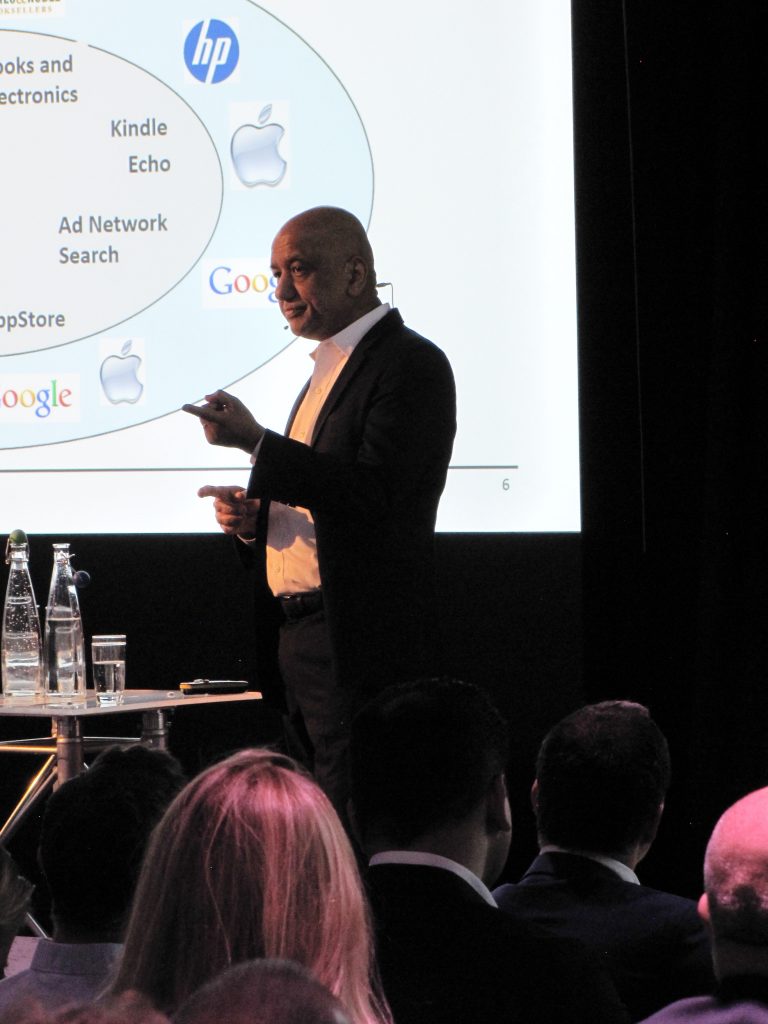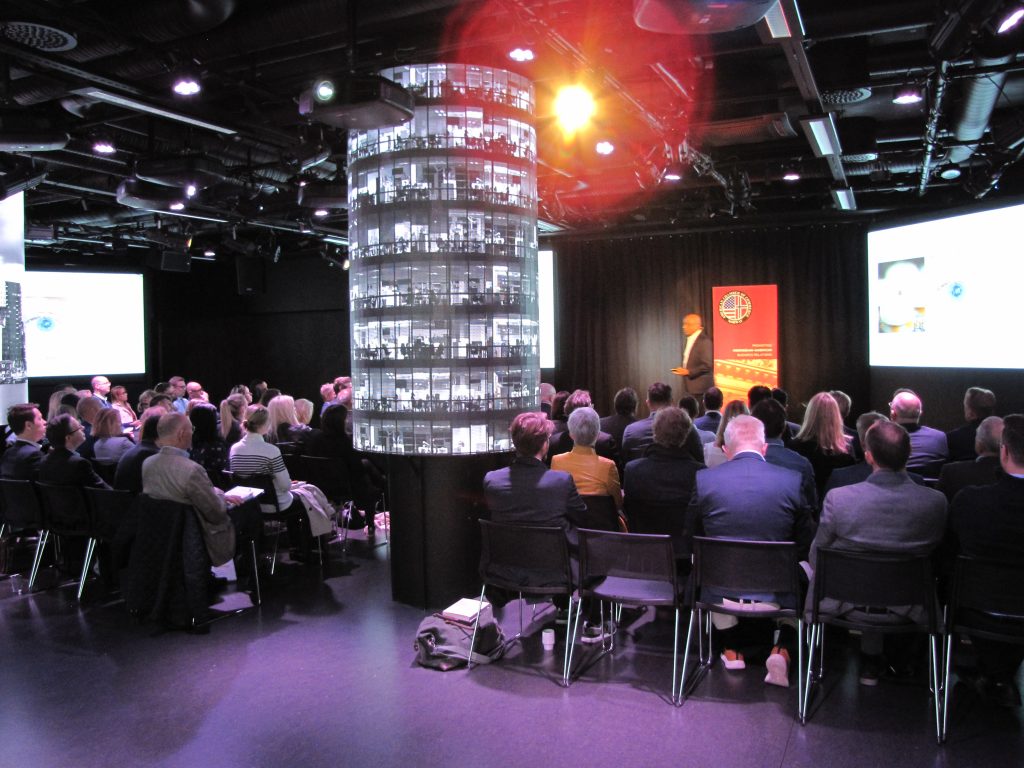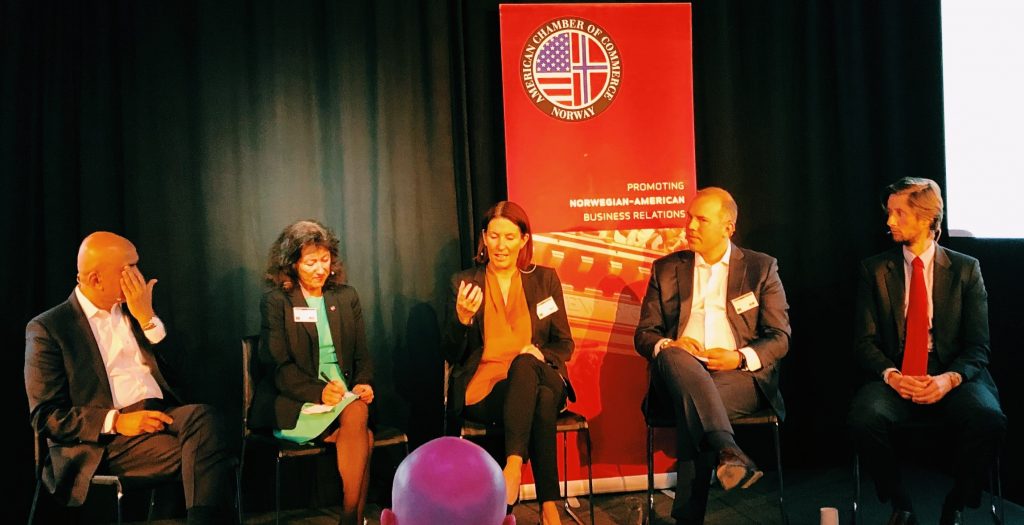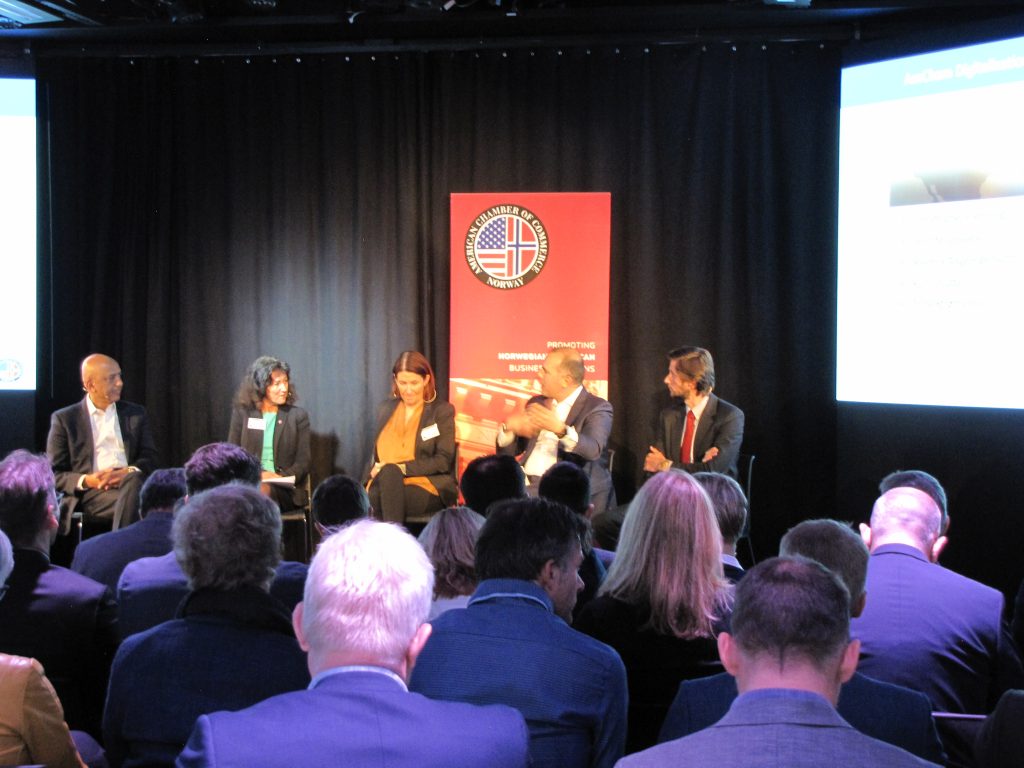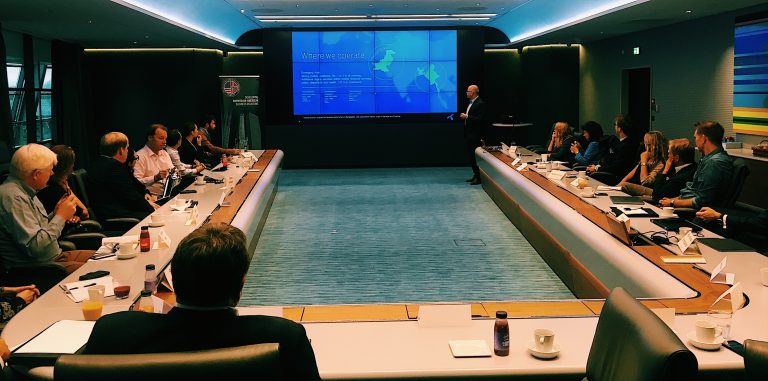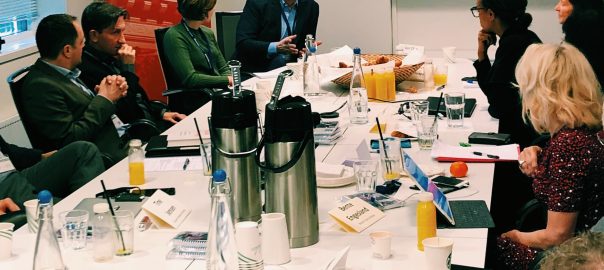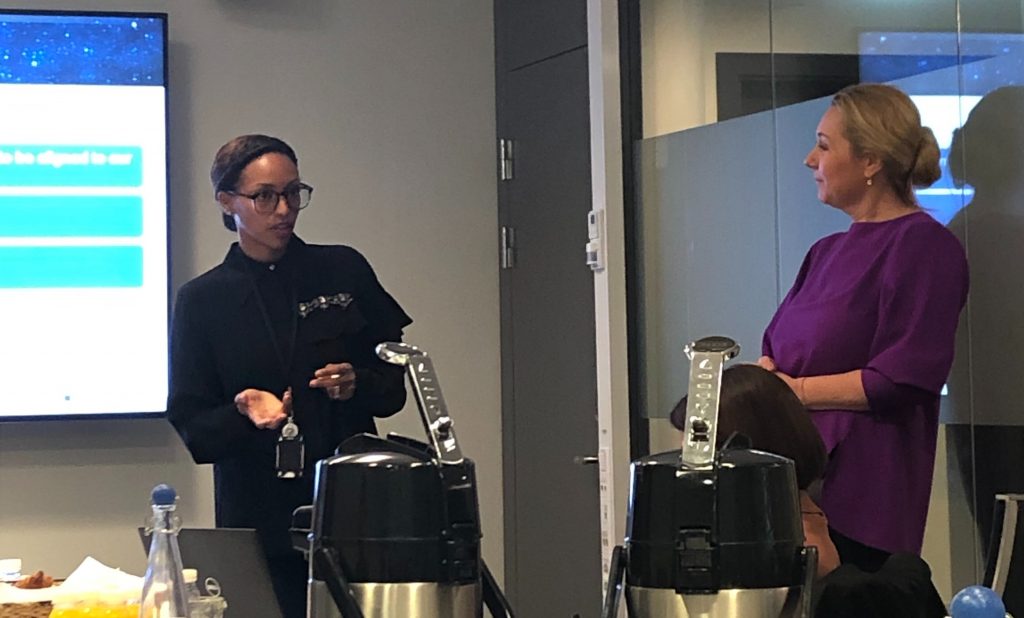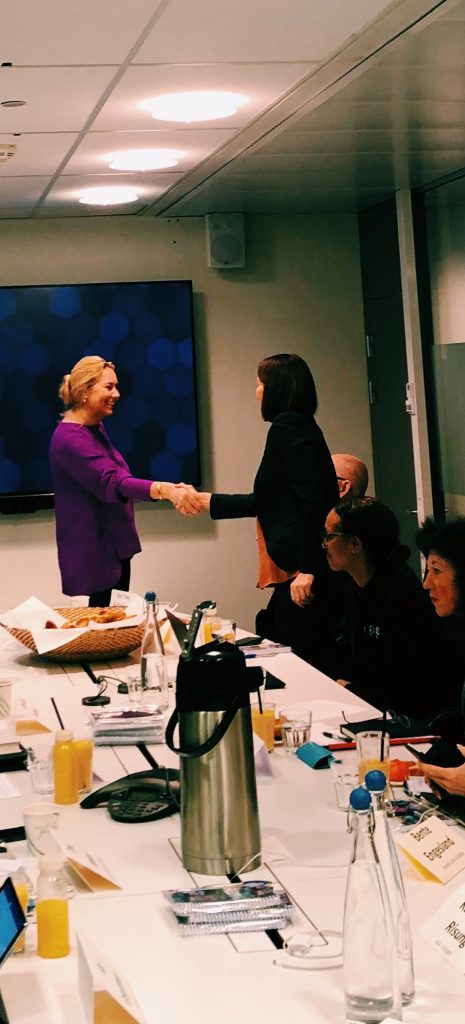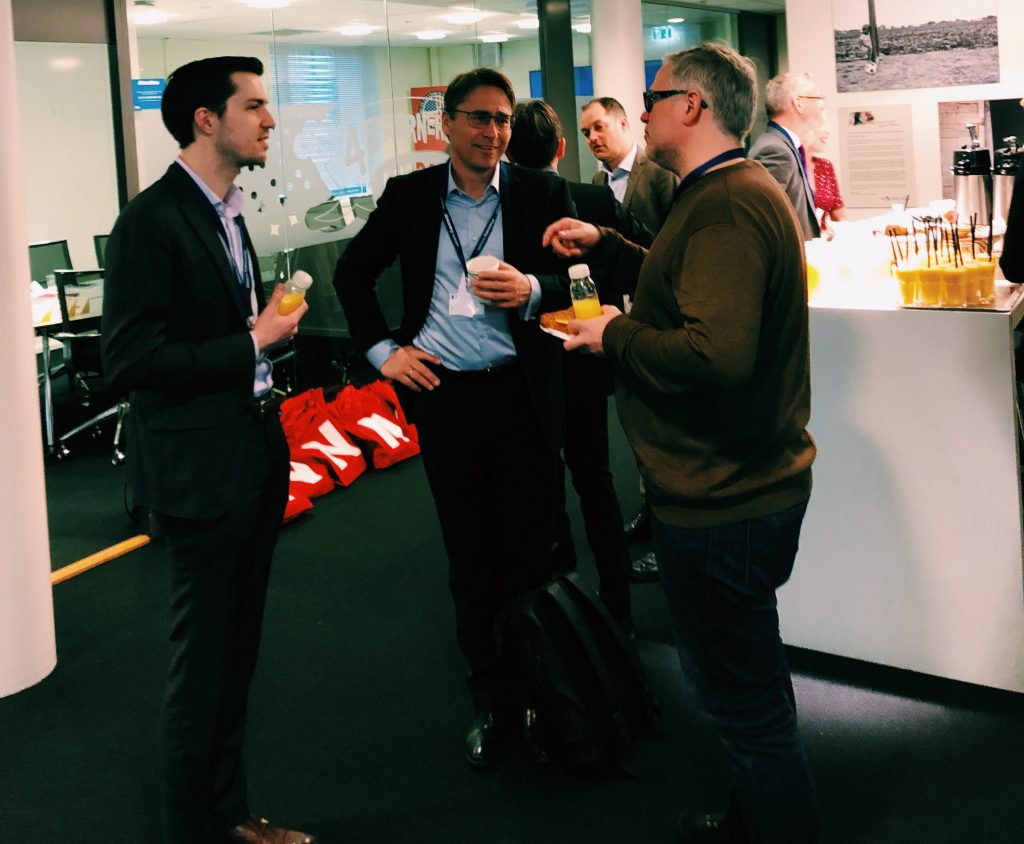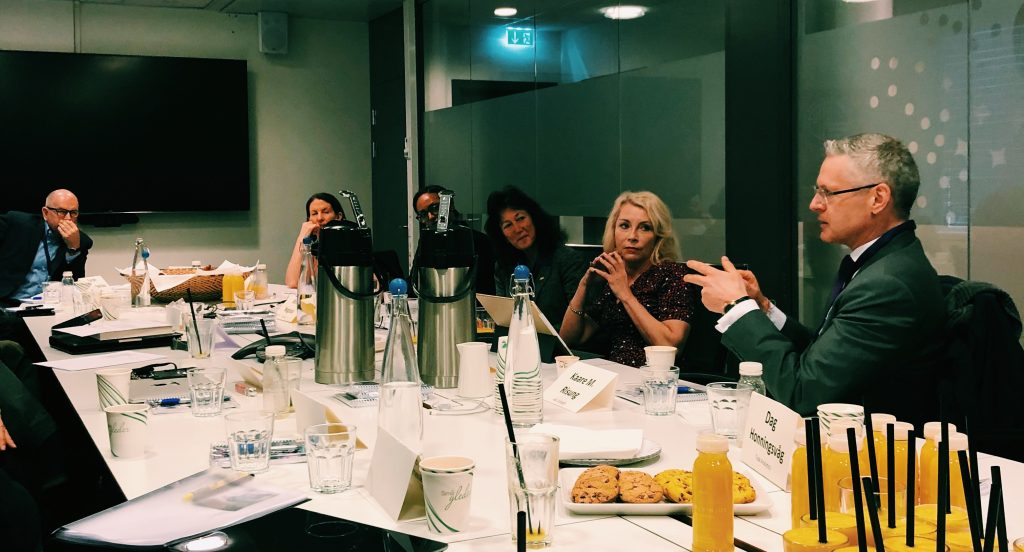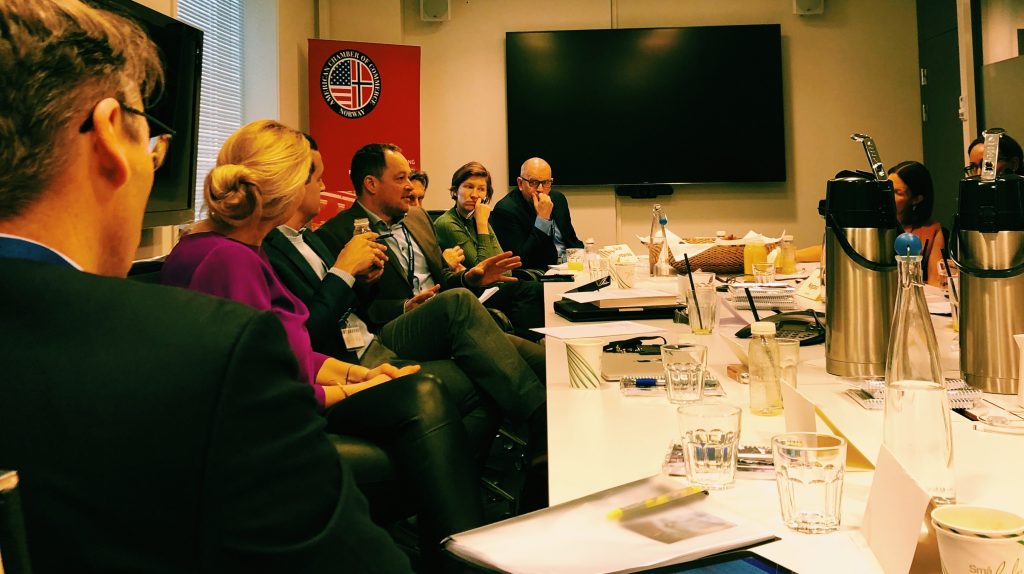AmCham Digitalization Forum: Artificial Intelligence, Threats & Opportunities
Brussels-based Cornelia Kutterer, Head of Responsible Tech & Competition – European Government Affairs at Microsoft, gallantly joined AmCham’s latest hybrid-format Digitalization Forum while on travel from late night Seattle! Kutterer and her team focus on the impact of new technologies and regulatory frameworks that meet expectations of society and healthy competition.
Focusing upon AI threats, opportunities and future-proofed regulation, Kutterer stated that “while we firmly agree that the [European Commission’s] AI Act should articulate what regulated actors should seek to achieve, we believe it will provide a more effective framework for responsible innovation if it is less prescriptive on how they achieve them.” Through multiple sensitive AI use cases, she illustrated how a more principles-based approach – within pragmatic guardrails – would help drive clarity and innovation.
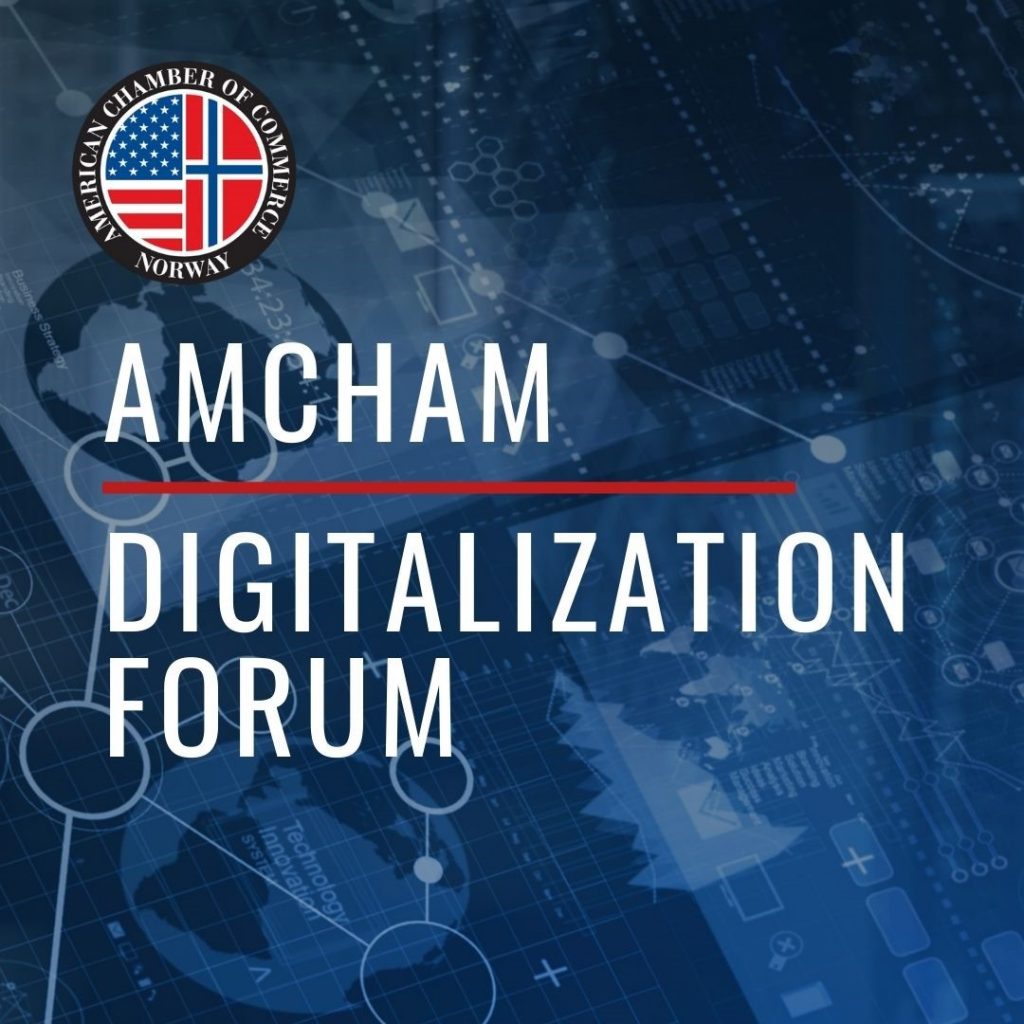
Presenters

Cornelia Kutterer – Head of Responsible Tech & Competition, European Government Affairs


Katarzyna Michalowska – AI Research Scientist

“Curating data, intentional [model] design, fair evaluation and raising awareness of the responsibility of algorithms are key to minimizing bias.”
Katarzyna Michalowska
SINTEF Digital’s Katarzyna Michalowska followed, presenting on discriminatory bias in machine learning (ML). Though ML algorithms are extremely efficient and often accurate, biased algorithms can discriminate against groups based upon gender, race, or sexuality. Michalowska soberly illustrated these issues and broader implications, while addressing how to increase ML algorithm fairness. “Curating data, intentional [model] design, fair evaluation and raising awareness of the responsibility of algorithms are key to minimizing bias.” Brisk participant exchange ensued, with both Kutterer and Michalowska providing additional AI challenges, fairness and opportunity insights.

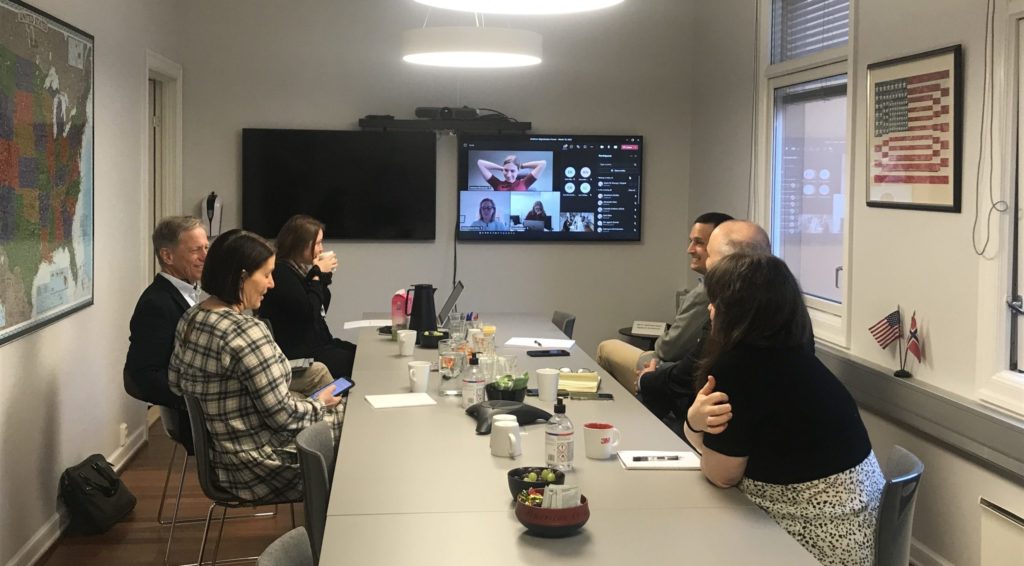
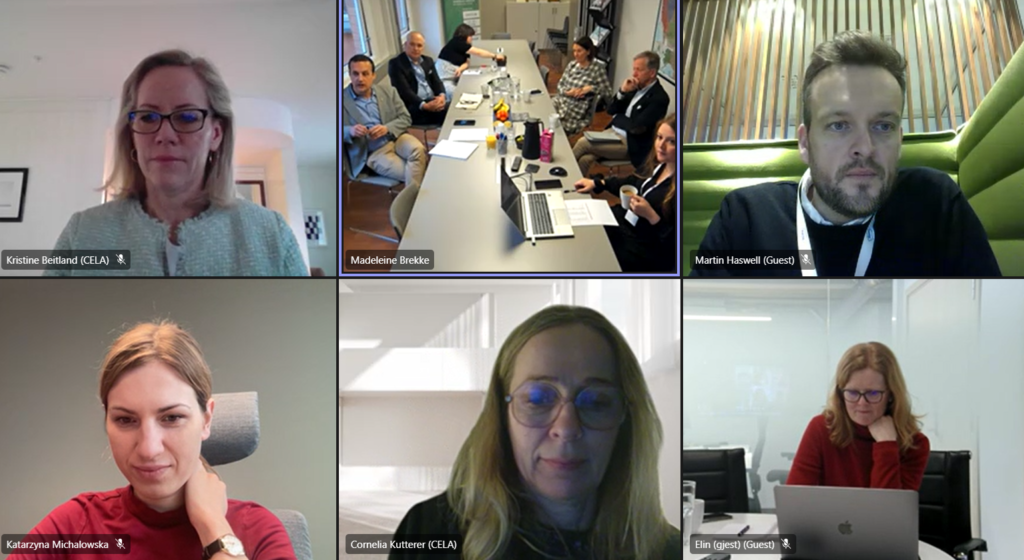
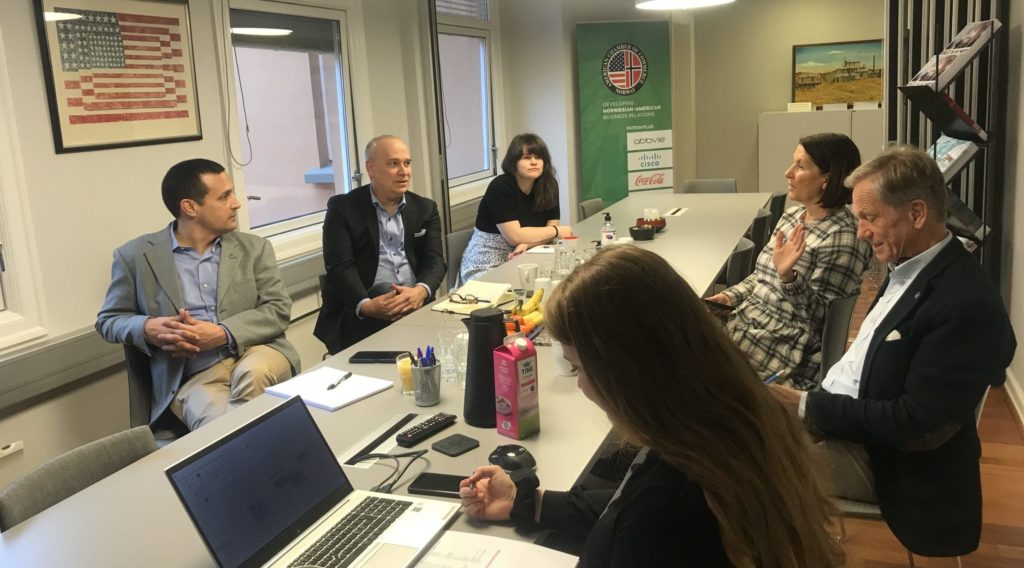
AmCham Digitalization Forum: Building Networks, Developing Competence, Expanding Knowledge
From sharing best practices to exploring how member companies adapt and innovate, AmCham’s long running Digitalization Forum fosters leaders’ transformation confidence and inspires cross-industry collaboration in an ever-evolving digital business environment.
Please contact amcham@amcham.no for interest in joining and/or presenting during future Digitalization Forums.
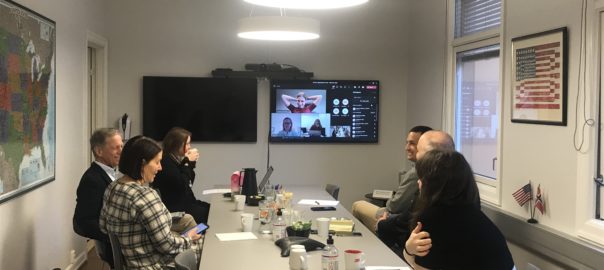
AmCham Digitalization Forum – Artificial Intelligence, Threats & Opportunities
AmCham Digitalization Forum: Artificial Intelligence, Threats & Opportunities Brussels-based Cornelia Kutterer, Head of Responsible Tech & Competition – European Government Affairs at Microsoft, gallantly joined
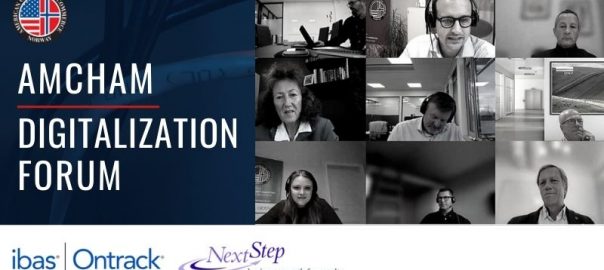
AmCham Digitalization Forum: Ransomware Recovery & Digital Adaptation Leadership
Leaders from Badenoch + Clark, DNB, DNV, KPMG, Lockton Companies, Marsh, Microsoft, Schjødt, Sparebank1, Tailormade Consulting and Thommessen met virtually for AmCham’s latest Digitalization Forum.
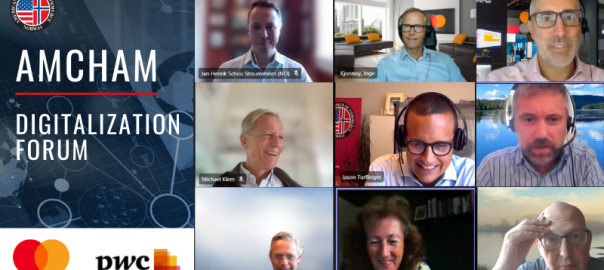
AmCham Digitalization Forum: Digital Transition and Trust
AmCham member representatives warmly gathered virtually on September 3rd for the AmCham Digitalization Forum with speakers from Mastercard and
PwC.






